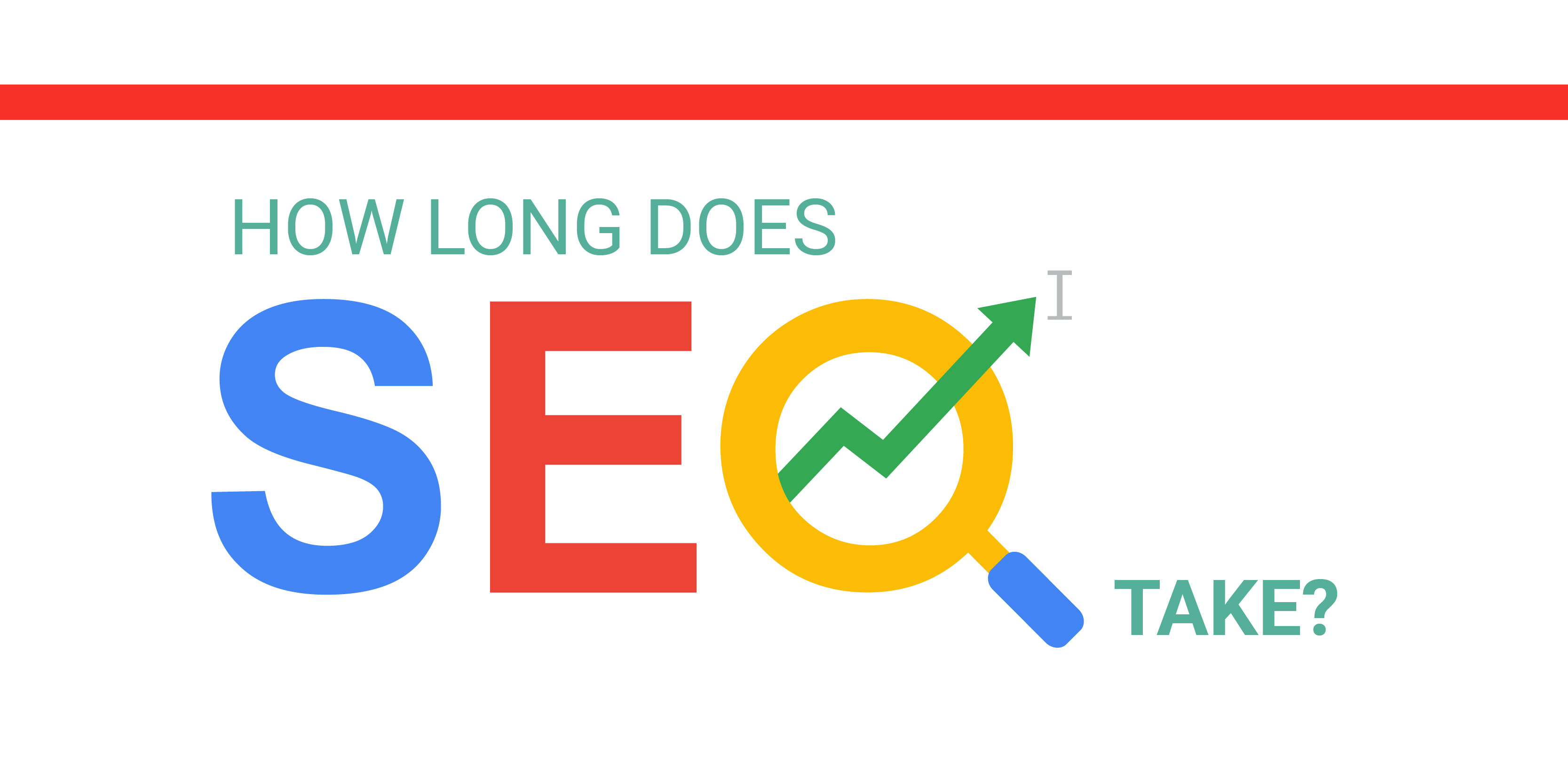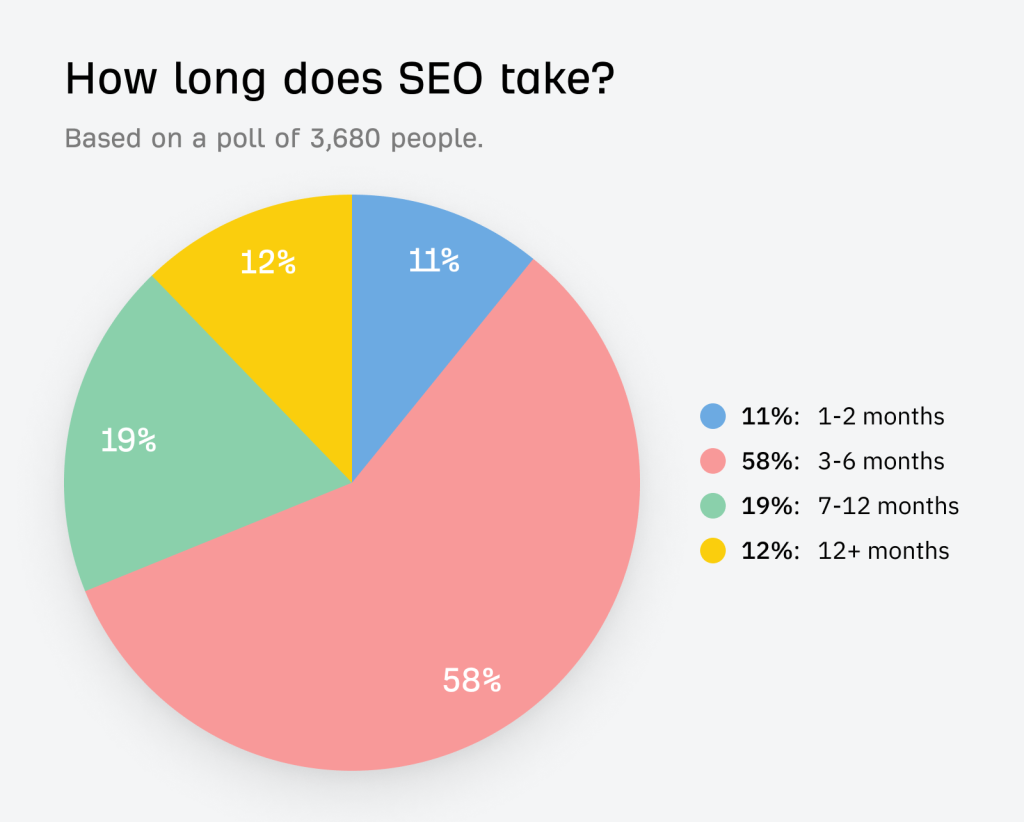SEO is not an overnight process. Results take time and effort.
Many wonder, “How long does SEO take? ” The answer isn’t simple. SEO involves many factors. Search engines like Google use algorithms. These determine how fast your site gains visibility. Keywords, content, and backlinks matter. Patience is crucial. SEO strategies need time to show results.
Often, it takes months to see significant changes. But it’s worth it. A well-executed SEO plan can boost your site’s traffic. Understanding the timeline helps manage expectations. Ready to dive deeper into SEO timelines? Let’s explore what impacts the duration and how to optimize your strategy for the best results.
Factors Influencing Seo Timelines
Understanding how long SEO takes can be challenging. Various factors influence SEO timelines. These factors can either speed up or slow down your progress. Here, we will explore some key elements that affect how quickly you may see results from your SEO efforts.
Website Age And Authority
Older websites often have a head start. They usually have more backlinks. They also have more content and a stronger online presence. This can make it easier for them to rank higher. New websites may need more time. They need to build authority from scratch. This involves earning quality backlinks and creating valuable content.
Competition In Your Niche
Some niches are more competitive than others. Highly competitive niches can take longer to see results. Many established players already occupy top spots. Less competitive niches might offer quicker wins. You can rank faster with less effort. It’s crucial to analyze your niche thoroughly.
Quality Of Content
High-quality content is key to SEO success. Search engines favor valuable and relevant content. Poor content can hinder your progress. Regularly updating your site with fresh, quality content helps. It keeps visitors engaged and returning. It also signals to search engines that your site is active and valuable.

Credit: www.arcstone.com
Initial Stages Of Seo
The initial stages of SEO are crucial for any website’s success. These stages lay the foundation for better visibility. They involve several important steps.
Site Audit And Analysis
The first step is a thorough site audit. This involves checking the website’s health. Look for any technical issues. Analyze website structure and performance. Identify areas that need improvement. This step ensures a strong foundation.
Keyword Research
Keyword research is the next step. Find the terms your audience searches for. Use tools to identify popular keywords. Focus on relevant and targeted keywords. This helps attract the right visitors. Proper keyword research boosts your site’s relevance.
On-page Optimization
On-page optimization involves fine-tuning your website. Optimize title tags and meta descriptions. Ensure headers are properly structured. Improve the quality of your content. Include keywords naturally. Make sure your website is user-friendly. This step enhances user experience and search engine ranking.
Ongoing Seo Efforts
Ongoing SEO efforts are essential for maintaining and improving your website’s search engine rankings. SEO is not a one-time task. It requires continuous work and attention. In this section, we will explore key areas of ongoing SEO efforts.
Content Creation And Updates
Creating new content regularly is crucial for SEO. Fresh content keeps your audience engaged and attracts search engines. Update older content to keep it relevant and useful. This can improve your site’s authority and rankings.
- Write blog posts frequently.
- Update outdated information.
- Incorporate new keywords.
Link Building Strategies
Link building is another important ongoing SEO task. Quality backlinks from reputable sites can improve your site’s authority. Focus on building both internal and external links.
- Reach out to influencers for guest posts.
- Participate in forums and discussions.
- Use social media to share your content.
Monitoring And Adjustments
Regular monitoring and adjustments are necessary for effective SEO. Track your site’s performance and make changes as needed. Use tools like Google Analytics to gather data and insights.
| Task | Frequency |
|---|---|
| Analyze traffic | Weekly |
| Check backlinks | Monthly |
| Review keywords | Quarterly |
Make data-driven decisions to improve your SEO strategy. Adjust your tactics based on what works and what doesn’t.
Measuring Seo Success
Measuring the success of your SEO efforts is crucial. It helps you understand what works and what doesn’t. This section will dive into the key metrics and tools that can help you track your SEO performance effectively.
Key Performance Indicators
Tracking the right Key Performance Indicators (KPIs) is essential for measuring SEO success. Here are some important KPIs to consider:
- Organic Traffic: The number of visitors coming to your site through search engines.
- Keyword Rankings: The position of your target keywords in search results.
- Backlinks: The number and quality of links pointing to your site.
- Click-Through Rate (CTR): The percentage of people who click on your search engine listing.
- Bounce Rate: The percentage of visitors who leave your site after viewing only one page.
Analytics Tools And Reports
Using the right tools can make tracking your SEO success easier. Here are some popular analytics tools:
| Tool | Features |
|---|---|
| Google Analytics | Tracks traffic, user behavior, and conversions. |
| Google Search Console | Monitors search performance and identifies issues. |
| SEMrush | Provides keyword rankings, backlinks analysis, and more. |
| Ahrefs | Offers backlink tracking, keyword research, and site audits. |
Generate regular reports to keep track of your progress. These reports can help you identify trends and make informed decisions.
Setting Realistic Goals
Setting realistic SEO goals is vital for long-term success. Here are some tips for setting achievable goals:
- Understand your current performance before setting new targets.
- Set specific, measurable, and time-bound goals.
- Focus on both short-term and long-term objectives.
- Regularly review and adjust your goals based on performance data.
By setting realistic goals, you can ensure steady progress and avoid frustration.
Common Seo Challenges
SEO is a long-term strategy. It requires patience and persistence. Various challenges can make the process even more difficult. Understanding these challenges helps in planning better and achieving results faster. Let’s discuss some common SEO challenges.
Algorithm Changes
Search engines like Google change their algorithms frequently. These changes can impact your website’s ranking. Keeping up with these updates is essential.
Some key points to consider:
- Regularly check for updates from search engines.
- Adapt your SEO strategy accordingly.
- Monitor your website’s performance after each update.
Technical Issues
Technical issues can hinder your SEO efforts. They can affect how search engines crawl and index your site. Some common technical issues include:
| Issue | Impact |
|---|---|
| Broken links | Lower search engine ranking |
| Slow site speed | Poor user experience |
| Duplicate content | Confuses search engines |
Address these issues quickly to maintain your site’s performance.
Staying Ahead Of Competitors
Competition is fierce in most industries. Staying ahead of competitors is crucial for maintaining good SEO rankings. Here are some tips:
- Regularly analyze your competitors’ strategies.
- Identify their strengths and weaknesses.
- Focus on creating high-quality, unique content.
Stay proactive and keep improving your SEO techniques to stay ahead.

Credit: www.webapex.com.au

Credit: www.sitecentre.com.au
Frequently Asked Questions
How Long Does Seo Take To Show Results?
SEO results usually show in 3 to 6 months. It depends on competition and strategy.
Why Does Seo Take So Long To Work?
SEO takes time due to search engine algorithms, competition, and content quality. Patience is key.
Can Seo Results Be Achieved Faster?
Yes, with effective strategies and quality content. But, avoid shortcuts to prevent penalties.
What Factors Affect The Time Seo Takes?
Factors include competition, keyword difficulty, content quality, and website health. All impact SEO speed.
Is Ongoing Seo Necessary For Long-term Success?
Yes, ongoing SEO is crucial. It maintains rankings, adapts to changes, and improves performance over time.
Conclusion
SEO takes time and patience. Results won’t appear overnight. Consistency is key. Regular updates and quality content help. Focus on user experience. Keep track of progress. Adjust strategies as needed. SEO is a long-term investment. Small improvements add up. Stay committed for the best results.
Your efforts will pay off.


